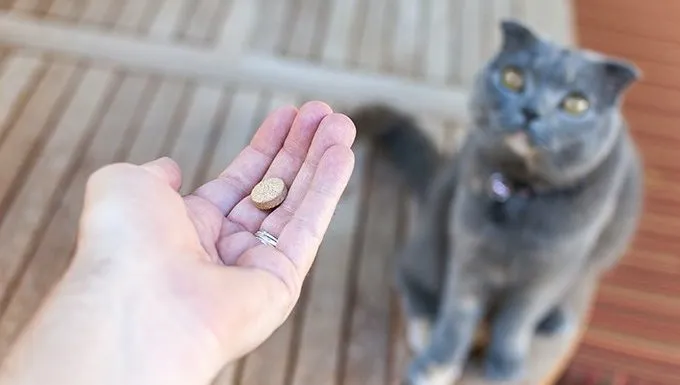Greetings, feline aficionados and concerned cat parents! Today, we’re diving into a topic that might ring a bell for those who’ve had a fur baby with certain health issues – Prednisone for cats. As responsible pet owners, it’s crucial to understand the medications that might be prescribed to our beloved companions. So, let’s explore the world of Prednisone, from the perspective of an animal expert, and discover its uses, dosage, and potential side effects.
Prednisone: The Cat’s Companion
Before we delve into the details, let’s demystify Prednisone. Prednisone is a synthetic corticosteroid, a medication that mimics the effects of naturally occurring hormones produced by the adrenal glands. It’s used in both human and veterinary medicine to treat a wide range of conditions, including those affecting our feline friends.
The Uses of Prednisone in Cats
A Versatile Medication
Prednisone can be prescribed to cats for various medical purposes. It’s particularly beneficial for managing conditions related to inflammation and immune system disorders. Some common uses include:
Allergies
Prednisone can help alleviate allergic reactions in cats, providing relief from itching, swelling, and other allergy-related symptoms.
Asthma
For cats with asthma, Prednisone can help reduce airway inflammation, making it easier for them to breathe.
Inflammatory Bowel Disease (IBD)
Prednisone can be an effective treatment for cats with IBD, helping to reduce inflammation in the digestive tract.
Autoimmune Disorders
In cases of autoimmune diseases, Prednisone can suppress the overactive immune response and manage symptoms.
Dosage and Administration
Precise Prescriptions
Prednisone should only be administered to cats under the guidance of a veterinarian. The dosage and duration of treatment can vary based on the specific condition and the cat’s individual needs. It’s crucial to follow the vet’s instructions diligently.
Potential Side Effects
The Flip Side
While Prednisone can provide relief for many feline ailments, it’s not without potential side effects. Some common ones include:
Increased Thirst and Urination
Cats on Prednisone may drink more water and urinate more frequently.
Increased Appetite
Prednisone can stimulate a cat’s appetite, potentially leading to weight gain.
Weakened Immune System
Prolonged use of Prednisone can weaken a cat’s immune system, making them more susceptible to infections.
Gastrointestinal Issues
Cats may experience digestive problems like vomiting or diarrhea while on Prednisone.
Monitoring Your Cat’s Health
Vet Visits are Vital
Regular check-ups with your veterinarian are crucial when your cat is on Prednisone. Monitoring their overall health, as well as any potential side effects, is essential for their well-being.
Conclusion
In conclusion, Prednisone can be a valuable medication for managing various health conditions in cats. However, it should always be used under the supervision and guidance of a veterinarian. While it can offer relief from discomfort, it’s essential to weigh the benefits against the potential side effects.
So, if your feline friend ever needs Prednisone, rest assured that it can be a pawsitive solution to their health woes. With proper monitoring and veterinary care, your cat can continue to enjoy a happy and healthy life by your side!
- Best LeadsGorilla Alternatives for 2025 - April 19, 2025
- Best Coldlytics Alternatives for 2025 - April 19, 2025
- Best Brevo Alternatives for 2025 - April 18, 2025



